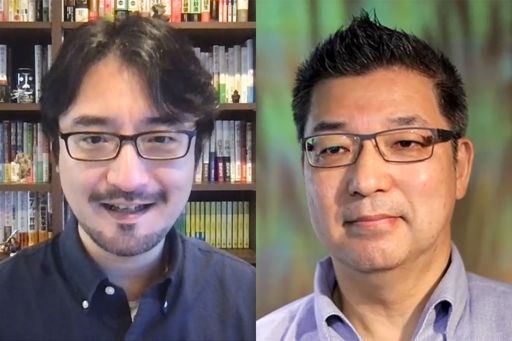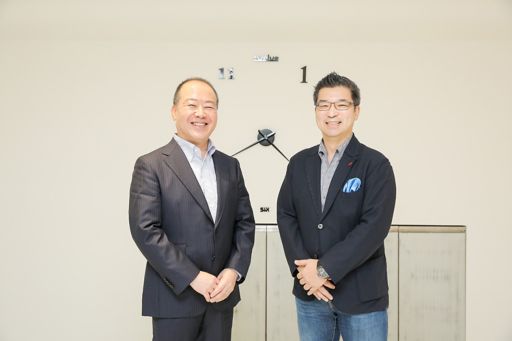New Form of Happiness that Will Spread in the Age where the Culture of Lending and Borrowing Has Taken Root −"A Country where It Is Easy to Borrow and Lend Is Surely a Livable Country”−
All kinds of values are slowly but surely changing due to the COVID-19 pandemic. Especially now that the concepts of ESG and SDGs, which are rapidly gaining recognition these days, and the Millennials/Generation Z are becoming the center of society, the yardstick for measuring life fulfillment that has long been taken for granted is about to change. Because of these times, it is perhaps natural that intrinsic value brought about by sharing services is embraced. We can also say that the power of digital technology is helping to expand this possibility.
In this article, we will introduce the discussions conducted between Rieko Muramoto of Peace Tec Lab Inc. and Masayuki Chatani of KPMG Ignition Tokyo while envisioning and fantasizing “how technology will reform the way we live, work and value” and “what will be the driving force behind this reform?” in the post-COVID-19 age.
Technology Will Surely Become the Foundation of a Livable Country
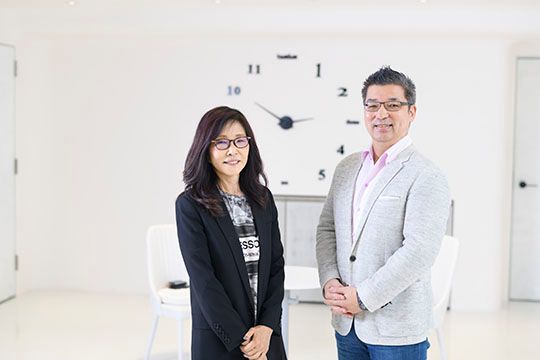
(Rieko Muramoto, Representative Director of Peace Tec Lab, Inc. (left), Masayuki Chatani, Representative Director & CEO of KPMG Ignition Tokyo and CDO of KPMG Japan (right)) *Professional affiliation and official position in the article are at the time of publication.
Chatani: You have served as a project leader of the video distribution service “Bee TV (now dTV)” and contributed to making the current “watch video on smartphone” a common practice. I have been looking forward to asking you how you think the “commonplace behavior” of people will change next with the power of digital technology.
I understand that you established a company called “Peace Tec Lab” in 2016 based on the concept that “a new way of living without material possessions will be possible if there is a service where you only have to pay when you use it.” Can you tell us about this company, starting with the intention behind the name of the company?
Muramoto: It’s very easy to understand. It means that “it is a laboratory where we all think about bringing peace to the world with technology.”
Chatani: Looking at your website, I see that your mission is “a country where it is easy to lend and borrow must surely be a livable country.” What I thought was interesting about this phrase was that there is some inference in it. The fact that the word “surely” is placed before “livable,” I think, is the key.
Muramoto: It is our proposal as a result of contemplating “what kind of country is livable” based on two considerations—that there is no such foundation at least in today’s world and that especially in Japan, disposable income has declined and the so-called “all-Japanese-are-middle-class” social structure, which was referred to a decade ago, has changed completely.
If the lifestyle of buying things and possessing them ourselves continues to be common practice, “livability” and “ease of living” will depend on how much disposable income we have. However, our mission incorporates our wish that a country where we can free ourselves from possessing things and live equally without worrying about each other’s money matters must be a “livable country.”
Value Worldview over Clarity, Empathy over Popularity
Chatani: The service you then started was “Alice.style.” The name of this service is quite interesting too.
Muramoto: The name comes from the well-known “Alice in Wonderland.” As you know, the main character, Alice, follows the white rabbit and goes on an adventure in a strange world she has never seen before.
I believe that the business we are developing now is a world that is different from conventional “wisdom.” It is a world with a new “wisdom” of “borrowing something only when it is necessary, without buying it.” We found common ground with “Alice in Wonderland” in the sense that we are creating a lifestyle and therefore made it the name of our service.
I think that the experiences and worldview of Alice in the book have many things in common with “Alice.style.”
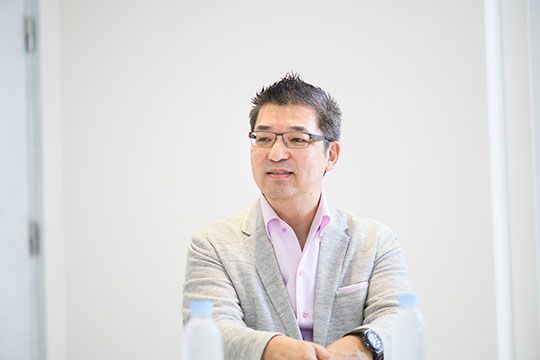
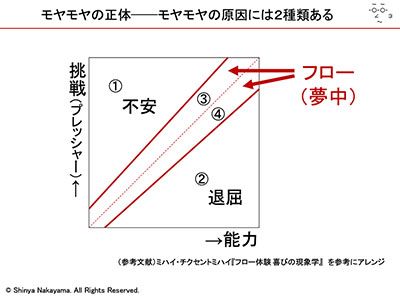
For instance, that story is about Alice’s experiences in a different world, and the new experiential value we are offering is a style in a different world of “borrowing things without buying them.” I think that the basis of our service is to make the transition between this worldview and reality smooth and to let people know that “they can have this kind of experience” and put it into practice.
Chatani: By the way, were there any other candidates for the name of the service?
Muramoto: No, there weren’t! Actually, I had suggested this name as a candidate before but it was not used. So, I had been wanting to use this name someday for a long time.
Everyone often says that service names that are easy to understand are better. This means that a name that is more specific and infers the nature of the service is better such as “Share XXX” or “Lending and Borrowing XX.” I can understand what they are trying to say but my view is that the worldview should be valued.
Chatani: I see. I hear that you made an offer to the two EXIT comedians to become official ambassadors based on this concept of “valuing the worldview.”
Muramoto: That’s right. Many people think that we chose them because their core fans are mainly female. This is certainly one aspect but it is not the essence of why we chose them as ambassadors. We chose them because we empathized with their backgrounds, sensitivities and their eco-oriented way of thinking, which I felt were very close to the worldview of “Alice.style.”
We came across them as a result of contemplating who the people were that would share our worldview.
Chatani: As I am originally from the Kansai area, comedians like EXIT are familiar to me and besides, I feel it is no wonder that they are in the world of “Alice in Wonderland.”
Muramoto: You’re right (laughs). At first glance, they may seem like very popular contemporary comedians but they are actually very serious at heart. When they were interviewed for an event we held, they talked about the essence of our service even though we didn’t discuss it in advance. It was a moment when I was glad that we had them as our official ambassadors.
One day, I happened to see the two EXIT members in a TV program where an episode of Daiki Kanechika’s childhood was being featured. His family was so poor that they could not buy any Christmas cake or birthday cake and his brother made a circle with his hands toward the night sky and said, “Look, it’s a cake.” This episode also seemed to touch his partner, Rintaro.
I, myself, also grew up in a poor mother-and-daughter family and remember feeling sad because we didn’t eat a decorated cake for Christmas because it was a waste to buy a big cake for just the two of us. So I was touched by his story.
Not only Daiki Kanechika himself but also Rintaro has high empathy and I felt that two people with such sensitivity would have a gentle lifestyle. This is when I was convinced that “these two are definitely the ambassadors for Alice.style.”
How Will Lending and Borrowing Change in the Digital World?
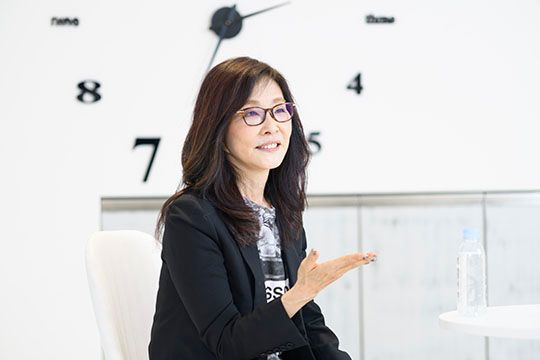
Chatani: I would now like to ask you about the business of “Alice.style.” The categories of the items that can be lent and borrowed now include beauty, fitness, kitchen, consumer electronics, AV/IT, baby/kids, hobbies and home center. What was the reason you chose these categories?
Muramoto: If anything, it was mainly because they are closely related to our daily lives. Car rental is commonplace even in this age but in reality there is very little lending and borrowing of other items used in daily life.
On the other hand, it was common for neighbors to lend and borrow things from each other in the early Showa and Edo periods. In times when things were scarce, it was common practice for those who had things to lend them to those who did not.
Then I thought, “So what happens if we replace this act with digital technology in the current age? It may be possible to achieve a state where 'lending and borrowing is the norm' once again in the 21st century.” Today, it is possible to create "virtual neighbors" using digital technology, in which people may be farther away from each other than their physical neighbors but can be neighbors in this world (Alice Style) by being connected with the app.
Chatani: I feel that the presence of “virtual neighbors” has increased because of the COVID-19 pandemic. By the way, how did you decide the order of the categories?
Muramoto: Before we started this service, we conducted a PoC (Proof of Concept) and deeply explored the idea that “Women are at the center of consumption. When we think about respecting women, what exactly is it that they want?" This is the order which we were able to visualize in that process.
Source of Ability to Come up with Business Ideas and Make Marketing Plans
Chatani: You said that you deeply explored the main users and their needs by conducting a PoC but I felt that two of the four strengths of Peace Tec Lab, which are “the ability to invent business ideas” and “the ability to make marketing plans,” were put to good use. While these abilities are generally known to be important, accuracy also determines what follows. What do you value the most at Peace Tec Lab?
Muramoto: What we value is to observe consumers closely. Observing consumers is exactly what marketing is all about, and I think that because we can see them clearly, we can come up with new business ideas. Observing consumers does not mean just observing them but also analyzing them.
I was already doing word-of-mouth analysis when the Internet started coming out. Compared to those days, many people now leave various "traces" on the Internet. For example, reactions to news, Amazon rankings and product reviews can all serve as marketing inputs.
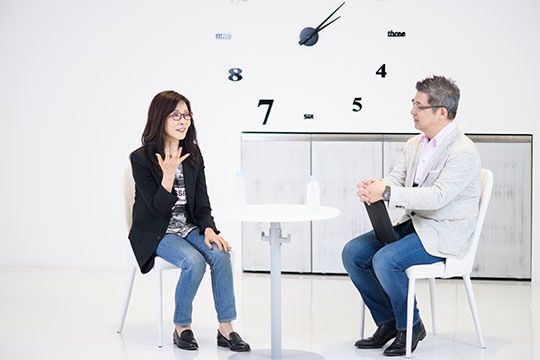
Chatani: You mean that by gathering data, they can be analyzed to find the next latest idea.
Muramoto: Yes, that’s right. However, traces on the Internet are only things of the past and it does not mean that new business ideas will emerge from there. Rather, they let us know that “people are buying these kinds of things or talking about them.” At the same time, we patiently look for contexts that are connected to words such as “troubled,” “difficult” or “inconvenient.”
Chatani: You mean that they do not provide answers but hints regarding new businesses.
Muramoto: Exactly. It's like “understanding that there is pain.” Our approach is to find it, look for a solution and create a service.
Profile of Interviewee
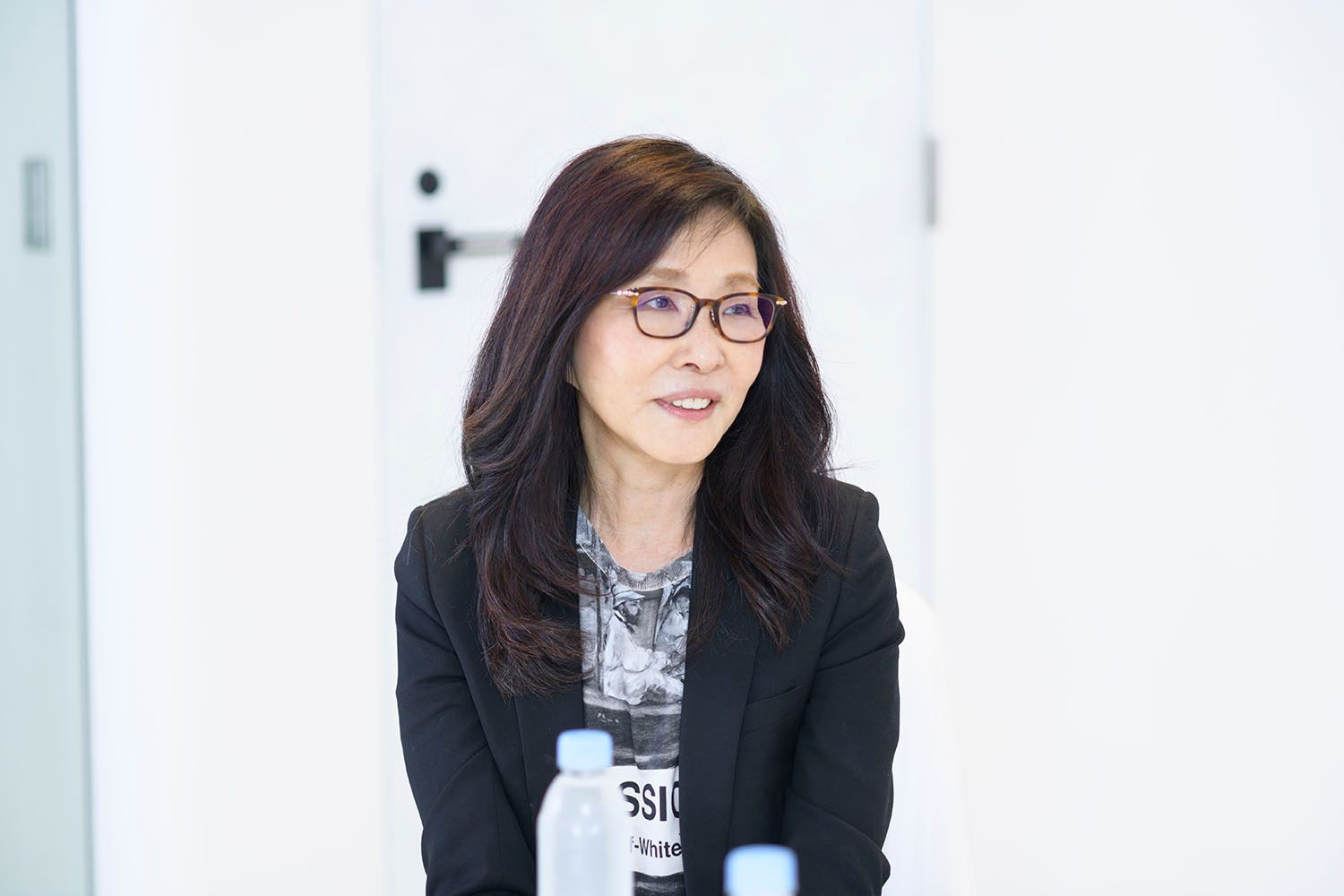
Rieko Muramoto
Representative Director, Peace Tec Lab, Inc.
After graduating from the Department of Sociology, Graduate School of Humanities and Sociology, Faculty of Letters, the University of Tokyo, Rieko Muramoto joined Jiji Press Co. and was engaged in public opinion surveys and market research analysis. In 1997, she became a professor in the School of Business Administration at Senshu University. In 2000, she assumed the post of chairperson of Gala Inc. and contributed to listing the company on the NASDAQ Japan (currently JASDAQ) stock exchange. In 2009, she was appointed as a board member of Avex Broadcasting & Communications Inc., where she took part in the establishment of the mobile video distribution business, “BeeTV (currently dTV),” and was also involved in formulating its business, marketing and organizational strategies after its establishment. In 2013, she was appointed as a board member of Avex Digital Inc., where she promoted digital-related businesses of various companies. In 2016, she established Peace Tec Lab, Inc. In 2018, she started providing “Alice Style,” a lending and borrowing app to establish a new infrastructure for sharing services to realize SDGs and to create a society where “experience” can be provided equally by lending and borrowing things. She was awarded Nikkei Woman’s “Woman of the Year 2021” and was ranked 10th in the corporate category (with fewer than 300 employees) of the “Forbes JAPAN WOMEN AWARD 2021.”
Follow us on KPMG Ignition Tokyo LinkedIn for the latest news.
Connect with us
- Find office locations kpmg.findOfficeLocations
- kpmg.emailUs
- Social media @ KPMG kpmg.socialMedia



